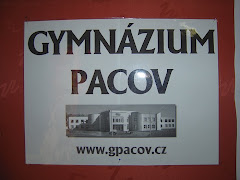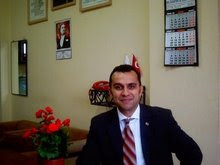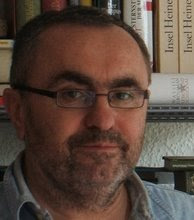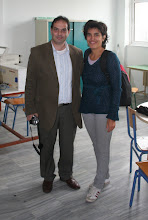Nine schools from nine different European countries agreed to work together for a period of two years. We would like to get to know and understand each other. We will therefore compare the way young people live in our communities.
The official topic is "The influence of cultural environment on the development of a young person - a citizen of a native country and the EU".
We will first look at the family environment of our students - structure of families, traditions, celebrations, the way young people spend their free time. In April 2009 we will have photo exhibitions and reports on this topic by all schools and available to all schools.
The schools are very diverse in their locations and the situation of their students. They range from schools in disadvantaged areas of their countries to grammar school environment with students from a better than national average background. It will be an interesting experiment to see how we can all co-operate and learn from each other.
The students of the ITCG Fermi come mostly from a peaceful and well organized small town and village background. They are mainly of Italian origin. However we have students of foreign origin in most classes. Students, however, do not normally notice the difference of ethnic background and there are no ethnic conflicts at school. We are, however, concerned about the issue of racism in general.
Our project is aimed at helping students to understand the situation of young people in other European countries and therefore overcome stereotypes and cultural barriers.
Content
- students get to know the structure of a family and its traditions in different European countries; its influence on a young person´s character and the system of values of a young person
- improvement of the students´ and local community´s knowledge on the youth´s everyday life in other European countries, ways of spending free time, celebrations, activities of sports clubs and culture centres
- students know the influence of the local and European culture on the development of a young person
- students know the opportunities of education in other countries and learn how to meet the demands of the job market in EU
- students suggest a programme for the local policy concerning the youth
- students know the tradition , culture and history of other countries
- students learn how to be tolerant and open to other cultures
- students learn multicultural approach through work in international groups
- students and teachers make friends with the staff from other countries
- students improve their knowledge of foreign languages and increase their vocabulary
- students improve their practical knowledge of foreign languages
- students improve their knowledge of IT ( e. g. preparing presentations, using the Internet for communication)
- students learn how to carry out statistical research and evaluate the results using mathematical methods


















